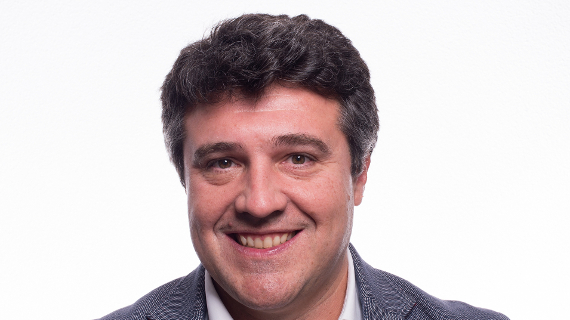David Herrera
International Association for Dental Research (IADR): what an international association for dental research can do for you?

- Full-time professor of Periodontology, University Complutense of Madrid (UCM)
- Associated Dean for Clinics (UCM)
- Co-director of the Graduate Program in Periodontology (UCM), accredited by European Federation of Periodontology (EFP)
- President of the Spanish Society of Periodontology (SEPA, 2013-2016)
- President of the Continental European Division (CED) of the International Association for Dental Research (IADR)
- Vice-president of the Periodontal Research Group (PRG) of the International Association for Dental Research (IADR)
- Scientific activity within Periodontal & Periimplant Etiology, Therapy, Microbiology and Antimicrobials: more than 100 scientific publications in JCR journals
Nationality: Spain
Scientific areas: Research Forum
16 of november, from 12h00 until 13h00
Sala 1
Conference summary
The International Association for Dental Research (IADR) is a non-profit organization, with almost 11,500 members worldwide, with headquarters in Alexandria, U.S.A. Among their objectives, one is very relevant for this presentation, “to support and represent the oral health research community”.
IADR is organized in geographical divisions, and one of the most important divisions is the Continental European Division (CED), which merge together in one organization researchers from almost 30 European countries: Albania, Armenia, Austria, Azerbaijan, Belarus, Belgium, Bosnia Herzegovina, Bulgaria, Croatia, Czech Republic, Denmark, Estonia, France, Germany, Greece, Georgie, Hungary, Italy, Yugoslavia, Latvia, Liechtenstein, Lithuania, Luxembourg, FYRO Macedonia, Malta, Moldova, the Netherlands, Poland, Portugal, Romania, Serbia Montenegro, Slovakia, Slovenia, Spain, Switzerland, Turkey and Ukraine. In addition, European divisions have also a Federation (Pan-European Region, PER), in which CED works together with the Irish, Israeli, British and Scandinavian divisions.
Therefore, the potential of this organization to support and represent the oral health research community should be highlighted, and it should be able to promote oral health research at every administrative level, including the European institutions. Oral health, in general, and oral health research, in particular, should have a more relevant position in the research agenda, and CED-IADR could help in that process, if it is adequately supported by researchers.
Scientific sponsor